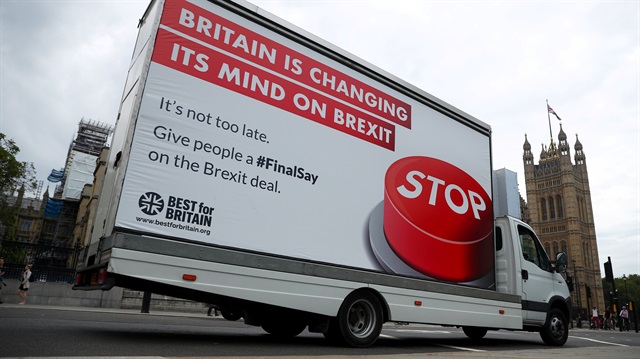
British voters would vote 59-41 to stay in the European Union if given the option after a six-point swing away from Brexit, an opinion poll showed on Wednesday, the highest recorded support for EU membership in such a survey since the 2016 referendum.
In the June 23, 2016 referendum, 17.4 million voters, or 51.9 percent of the votes cast, backed leaving the EU while 16.1 million voters, or 48.1 percent of votes cast, backed staying. Many opinion polls were wrong about the result.
Polling showed 59 percent of voters would now vote to remain in the bloc, versus 41 percent who would vote to leave. The findings were published in an academic-led report on Wednesday by research bodies NatCen and The UK in a Changing Europe.
That is the highest recorded support for 'remain' in a series of five such surveys since the 2016 referendum and a large reversal of the actual 52-48 percent vote to leave.
The author of the report, polling expert John Curtice, added a note of caution, saying that their panel of interviewees reported they had voted 53 percent in favour of remain in the original vote - a higher proportion than the actual vote.
"Nevertheless, this still means that there has apparently been a six-point swing from Leave to Remain, larger than that registered by any of our previous rounds of interviewing, and a figure that would seemingly point to a 54 percent (Remain) vote in any second referendum held now," Curtice said in the report.
Britain is due to leave the EU on March 29, 2019 but has yet to secure an exit agreement to define future relations with Brussels and manage the economic impact of ending over four decades of integration with the world's largest trading bloc.
The government has ruled out holding a second referendum.
The survey interviewed 2,048 subjects between June 7 and July 8. That means the survey does not fully reflect any change in opinion brought about by the publication of Prime Minister Theresa May's negotiating strategy, published in early July.
That negotiating strategy has split May's party at every level and drawn heavy criticism from both Brexit supporters and those who want to retain close ties to the EU.
Nevertheless, the poll shows voters thought the negotiations were going badly even before the publication of May's so-called Chequers plan.
"Both Remain and Leave supporters have become markedly more critical of how both the UK government - especially - and the EU - somewhat less so - have been handling the negotiations," Curtice said. "They have also become markedly more pessimistic about how good a deal Britain will get."
Curtice said the results of the polling showed that the most influential factor over whether voters will support the conclusion of the negotiations is their perception of its economic effect rather than the details of any deal.





